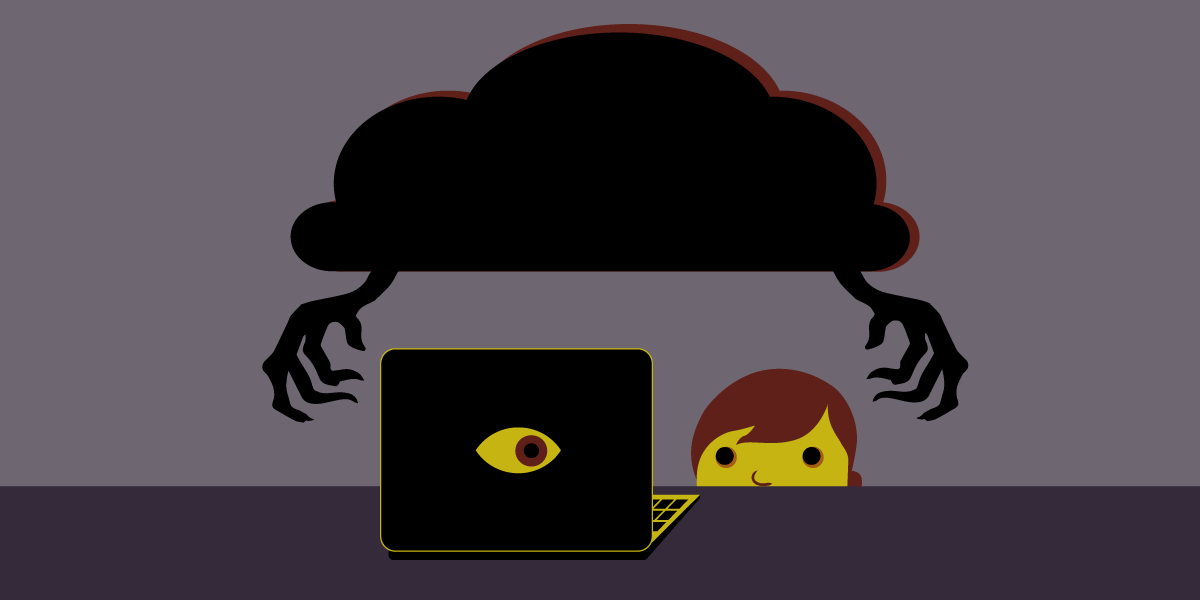Imagine your search terms, key-strokes, private chats and photographs are being monitored every time they are sent. Millions of students across the U.S. don’t have to imagine this deep surveillance of their most private communications: it’s a reality that comes with their school districts’ decision to install AI-powered monitoring software such as Gaggle and GoGuardian on students’ school-issued machines and accounts.
“As we demonstrated with our own Red Flag Machine, however, this software flags and blocks websites for spurious reasons and often disproportionately targets disadvantaged, minority and LGBTQ youth,” the Electronic Software Foundation (EFF) says.
The companies making the software claim it’s all done for the sake of student safety: preventing self-harm, suicide, violence, and drug and alcohol abuse. While a noble goal, given that suicide is the second highest cause of death among American youth 10-14 years old, no comprehensive or independent studies have shown an increase in student safety linked to the usage of this software. Quite to the contrary: a recent comprehensive RAND research study shows that such AI monitoring software may cause more harm than good.



We just fundamentally disagree on what rights someone is afforded on a company provided devices. They can’t opt out because obviously not, you don’t get to just opt out of information security policies.
It would be a different beast if the school didn’t allow you access coursework on a personal machine without installing their bullshit, thats a huge issue.
Yeah, I just fundamentally don’t think companies or workplaces or schools have the right to so much information about someone. But I can understand that we just see it differently.
I agree on that point, nobody has the right to any information about me except for exactly what I choose for them to know. Speaking from an IT professional standpoint, if I deploy a device, I absolutely have the right to know anything that happens on that device. You have to from a security perspective.
That’s why I don’t use any social media on my work laptop. Ideally that’s why social media is blocked on work machines so it’s a non-issue. Kids should understand that concept early, you do have a right to privacy but you also don’t control that device.
I feel you’re coming at this from an abstract angle more than how these things actually play out in practice. This isn’t reliable software, it isn’t proven to work, and the social and economic realities of the students and families and districts have to be taken into account. The article does a better job explaining that. There are documented harms here. You, an adult, might have a good understanding of how to use a monitored device in a way that keeps you safe from some of the potential harms, but this software is predatory and markets itself deceptively. It’s very different than what I think you are describing.
Speaking as an infosec professional, security monitoring software should be targeted at threats, not at the user. We want to know the state of the laptop as it relates to the safety of the data on that machine. We don’t, and in healthy workplaces can’t, determine what an employee is doing that does not behaviorally conform to a threat.
Yes, if a user repeatedly gets virus detections around 9pm, we can infer what’s going on, but we aren’t tracking their websites visited, because the AUP is structured around impacts/outcomes, not actions alone.
As an example, we don’t care if you run a python exploit, we care if you run it against a machine you do not have authorization to (i.e. violating CFAA). So we don’t scan your files against exploitdb, we watch for unusual network traffic that conforms to known exploits, and capture that request information.
So if you try to pentest pornhub, we’ll know. But if you just visit it in Firefox, we won’t.
We’re not prison guards, like these schools apparently think they are, we’re town guards.
That’s exactly how it works at many places. Students can only use a personal device if it’s enrolled in the school’s MDM, which grants them just as much control.
Schools literally, legally, are not companies.
The “provided devices” is the important part of that sentence